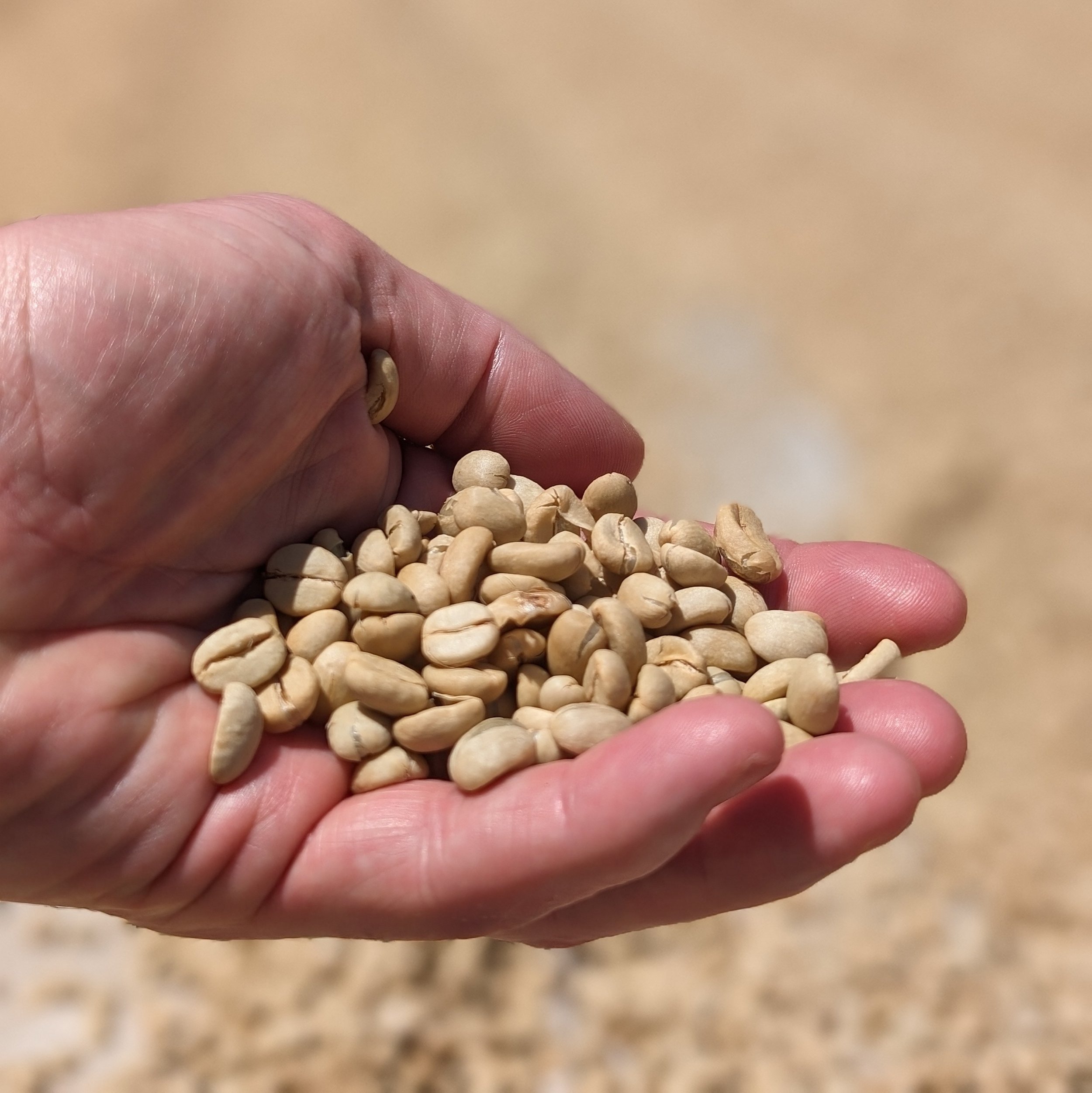Artwork Credit: Sam Landsberg
The bright citrusy nature of this coffee lends great to a zingy pourover or espresso beverage.
The Gachatha Factory (or Washing Station) was started more than 60 years ago and is made up of more than 1,500 smallholder farmers in Nyeri County, on the slopes of Mount Kenya and only a few hours drive north of Nairobi. The main crop in this region occurs from fall into winter each year. SL 28 and SL 34 make up the majority of the varietals planted here, with a small amount of Batian and Ruiru. During harvest, coffees are handpicked, then immediately delivered to the washing station for processing. After sorting and pulping, the coffees are left to ferment overnight (breaking down sugars) before being soaked and washed to ensure the cleanest possible coffees. At this point, parchment gets laid out to dry on raised beds for 13-14 days while continuous sorting and hand turning takes place.
Sometimes we are privileged enough to visit the coffee producers we partner with. This sort of engagement requires a lot of time, effort and money …. something we value dearly for the opportunity to be able to share these connections with you. It also allows us the ability to educate ourselves and our coffee drinking community about the needs and vulnerabilities of the producer communities we work with. In Kenya, education is not free: parents work very hard to send their children to school, and there are few opportunities in these remote agricultural communities. Therefore, we must find better ways to improve incomes and quality of life for our partners in order to maintain the high level of coffees we have come accustomed to enjoying.






























